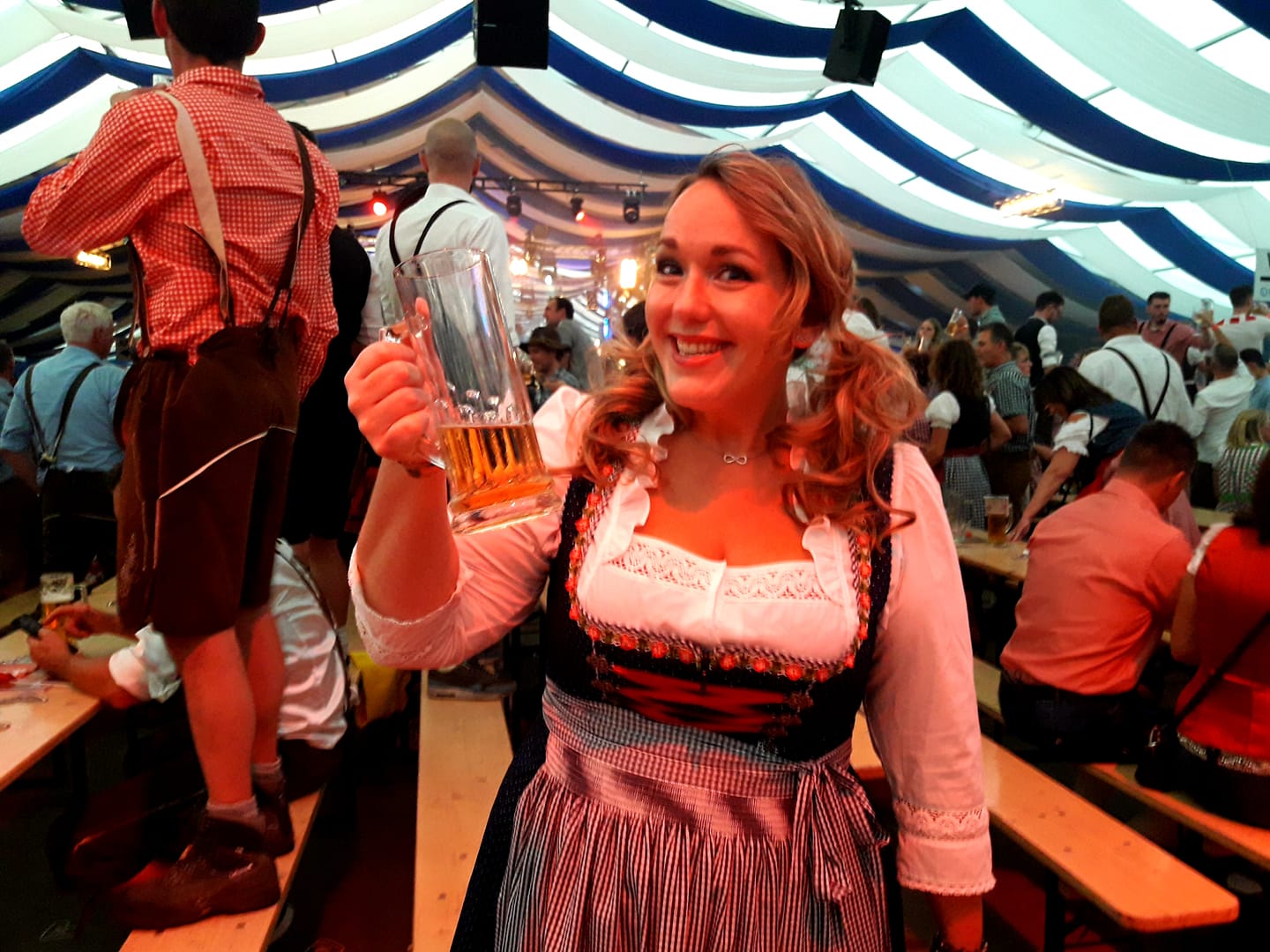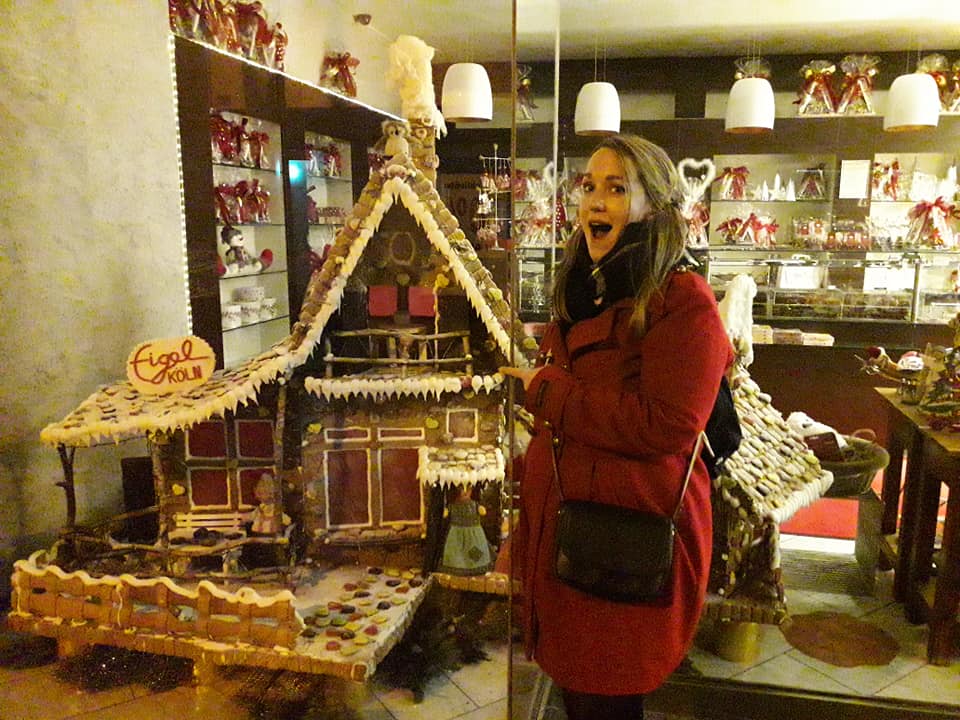
Every month, Fluency Corp reaches out to clients, friends or even family, who have relocated to another country for a job, in order to ask them why they moved, how they moved and how they made a new home for themselves in their new country. We are fascinated by their resilience and we want to support others who will be moving in the future. In these interviews, you will find authenticity, humility and also tips for how to make your relocation smoother. This month we spoke with Yolanda.
Meet Yolanda: A Netherlands Expat
Where are you from? Where have you moved to? And how long did you spend in each country?
I was born in Harlingen in Friesland. I’m half Dutch, half Swedish. Lived 17 years in England. 5 years in France, 1 year in Germany and now I am in Holland again.
So you said you moved around a lot as a child, so your natural state is moving, not staying? Is that correct?
Yes, I see myself as a gypsy without the caravan. I’ve moved 28 times in 36 years.
Why did you move so much?
My father did his degree in naval architecture, and because of that, we moved a lot but always by the sea which I loved hence I ended up in Enkhuizen!
What would you call your home country then?
Home is where the heart is! The Netherlands.
Becoming an Expat
Where did you become an adult?
For 18 – 26, the United Kingdom first, which is why I sound so British. I was there from age 15 – 32. London, Portsmouth, Southampton, Guildford. I actually thought I was going to be in the UK for the rest of my life but then Brexit happened and I decided to go back home. It was not an easy decision as I was leaving behind a great job, all my friends and my brother who lives in Portsmouth.
I ended up going to London, no job, no nothing, just taking a risk. This time is what really shaped me. This is how I got in the serviced apartment industry (relocation).
I wasn’t particularly focused on being in the serviced apartment industry per se, I didn’t even know what it was at the time, but it has been the best thing for me. I have an incredible job now and have been in it for 10 years.
During this time I was Corporate Sales Director for Short Stay Group and I was traveling every couple of weeks or so, having an amazing time, leisure time, getting my name out there in the industry and building up my reputation. In London, I worked for Oakwood – the biggest serviced apartment provider in the world which gave me a great foundation to help me to where I am now.
Then, an opportunity came along to go to Cologne, Germany. I was Head of Enterprise EMEA for a start-up company. It was a bit of a shock to the system as the German culture is so different, professional and personal. I spent a year there but decided to come back to the Netherlands as I felt I wasn’t integrating as well as I did in the other countries. I didn’t speak the language which made it hard to integrate into the German way of life, both professionally and personally but attended events such as Mundo Lingo to make new friends. You put sticky flags on you to states where you are from and what languages you speak. It was fun!
Working as an Expat
What do you do now?
I’m still in the serviced apartment sector. I just love it so much, I can’t see myself in any other sector. It’s like a big family, everybody knows everybody! You move from being a client to a supplier and back to a client. I was very honoured to have won ‘Rising Star of the Year’ in 2018 at the Serviced Apartment Awards in London. I felt immensely proud of this achievement. Somehow I received 2000 votes, I didn’t even know 2000 people so I felt very blessed. (There was an intense party of celebrating the win until the early hours of the morning…) (She laughs.)
Where do you work?
I’m now Country Manager Benelux for SITU serviced apartments – their HQ is in Exeter – UK. I’ve known Phil, the owner, for years and I had actually always wanted to work for them because of their family-like values. There are 45 employees, but nothing is ever too much for any of the SITU’ers, everyone wants you to succeed and will give you all the support and tools needed. One of the things I love is that nobody has their job title in their signature, I love that everyone is seen as equal in the company, everyone has a voice! When I worked in Germany, it was very much about hierarchy, you were the boss and that was that. I’m very easy-going and fair and like to portray that to my staff back then. With SITU they encourage new ideas/brainstorm sessions. SITU’s owner is very involved himself – if someone is snowed under he’ll jump in and help out. Every year, the company raises money for charity rather than receiving Christmas gifts. I can’t wait for my debut this Christmas haha! Check out the hysterical video!
Even though you were doing similar jobs in Germany and UK, what feels different now, both personally and professionally?
I’m such a happy go lucky person, meeting people all the time (virtual during the corona crisis but it is still personal in my opinion! You get a feel for their character just by seeing their working from home space), I think it’s important to find a connection with that person as it is an ice-breaker and I am genuinely interested in people’s backgrounds. I would say it’s the opposite in Germany, it’s rather regimented and in my opinion a slight lack in empathy (or I just tell bad jokes!) I find that in general they are quite behind on technology, which was quite surprising. The culture as well. I noticed in Germany – and I’m sure it wasn’t done intentionally – but they forget to consider people that don’t speak the local language. Everyone expects you to speak German, if you don’t, you don’t necessarily fit in. Yes, it was a great way to learn the language, but it was a little bit uncomfortable too.
The one thing I loved about German, though, were the traditions. Traditional restaurants with the really long tables and benches, traditional but simple dish of potato salad with sausage, and marking a cardboard coaster for the number of beers you had. Beautiful scenery, the Dom, Lindt Chocolate factory, boat trips and not to forget Oktoberfest (I bought a traditional Dirndl) and Carnival celebrations, I loved it!
Germany is really understated in regard to its beauty: nature, monuments, history. It really is a stunning country! So there were so many plus points living there as well.
Just overall integrating into society, making friends, meeting like-minded people…. that was hard.
Bearing in mind, I’ve moved 28 times and easily integrate into a new culture, I struggled this time, one of the reasons due to not having the language skills.
Challenges of Being an Expat
Do you think your reaction to Germany is because of where you’re coming from? So we need to be more careful or prepare more for our relocations depending on where we come from?
Absolutely. It definitely depends on where you come from. But everyone will feel a big change most anywhere they go, but different backgrounds, cultures will feel it differently. So even though Germany and the Netherlands are neighbours, it was still tough. Holidaying and working there are 2 very different things.
What were the specific challenges you faced after moving to Germany?
As an expat, I remember trying to open a bank account. Unless you speak German, you cannot sign the contract. I ended up with N-26, which is an bank for expats that need a bank account and don’t speak German.
Registering with doctors was hard. I couldn’t find anyone that spoke English. So my colleague had to help me find an English-speaking doctor. When I went to the appointment, she actually couldn’t understand me. So I had to use Google translate to explain my symptoms. The medication she gave me worked so she must have understood me.
How did you prepare for your move? Any tips for others?
Build up a support network when you get there. I also joined expat groups on Facebook. Use social media! It was an absolute lifesaver. You will be surprised how many people are in the same boat.
And second – do your research on the country you are moving to, try to speak to someone who has lived there before. I wish I had taken a bit more time to learn about living in Germany, because it was hard hence I joined Mundo Lingo – it’s across the world and helps you meet others.
What did you expect when moving to Germany that didn’t turn out to be so?
I think the language barrier was bigger than I expected with doctors and bank accounts.
What did you NOT expect that did happen?
I wasn’t expecting the hidden beauty of Germany.
Once you got here, what was a personal challenge?
Within my personal life, it was very interesting. I’m all about ‘when you move to the country, you abide by their rules. You learn how they do it. Integrate as much as possible’. I found it hard to make friends in Germany. Don’t get me wrong. I’ve made a couple of really good friends there, but most were English, only 2 German friends. I was trying my best to speak German, but they were acting if it wasn’t clear what I was saying. Hence I felt as if I never fit in even though I was making an effort.

Do you have a funny expat story? Or another funny language story where something was misunderstood?
Also, a colleague played a joke on me. We were in a local pub and he told me to order a beer and gave me the name. I went up and ordered it, and the bartender scowled at me. He had actually given me the name of a local beer in the competing nearby town. In Cologne you drink Kolsch (Cologne) but he had told me to order altbier (Dusseldorf). Like Amsterdam and Rotterdam competing. The look on the barman’s face, I’ll never forget that.
That first year, from 1 to 10, what would you score it?
7
What are the three top characteristics needed to be a successful, long-term expat?
Speak the language, integration, and socialising.
What role did language play in the success of your moves?
It’s quite funny. I’ve obviously lived in different countries where I’ve learned the language quite quickly. In Germany I struggled. They weren’t as open. The language is super important, you need to go to language classes. I wanted to go to a language school, but never got round to it because I was working so many hours. Maybe if I had known German more, I would have stayed longer. But I underestimated it. The biggest misconception is that people think the Netherlands and Germany are almost the same but that is not true at all!
Know an expat that would like to tell us their story? Please email getfluent@fluencycorp.com. Here at Fluency Corp we love supporting companies and their employees as they move abroad. If you have a need for corporate language training, reach out to us. We will increase your company’s communication.










